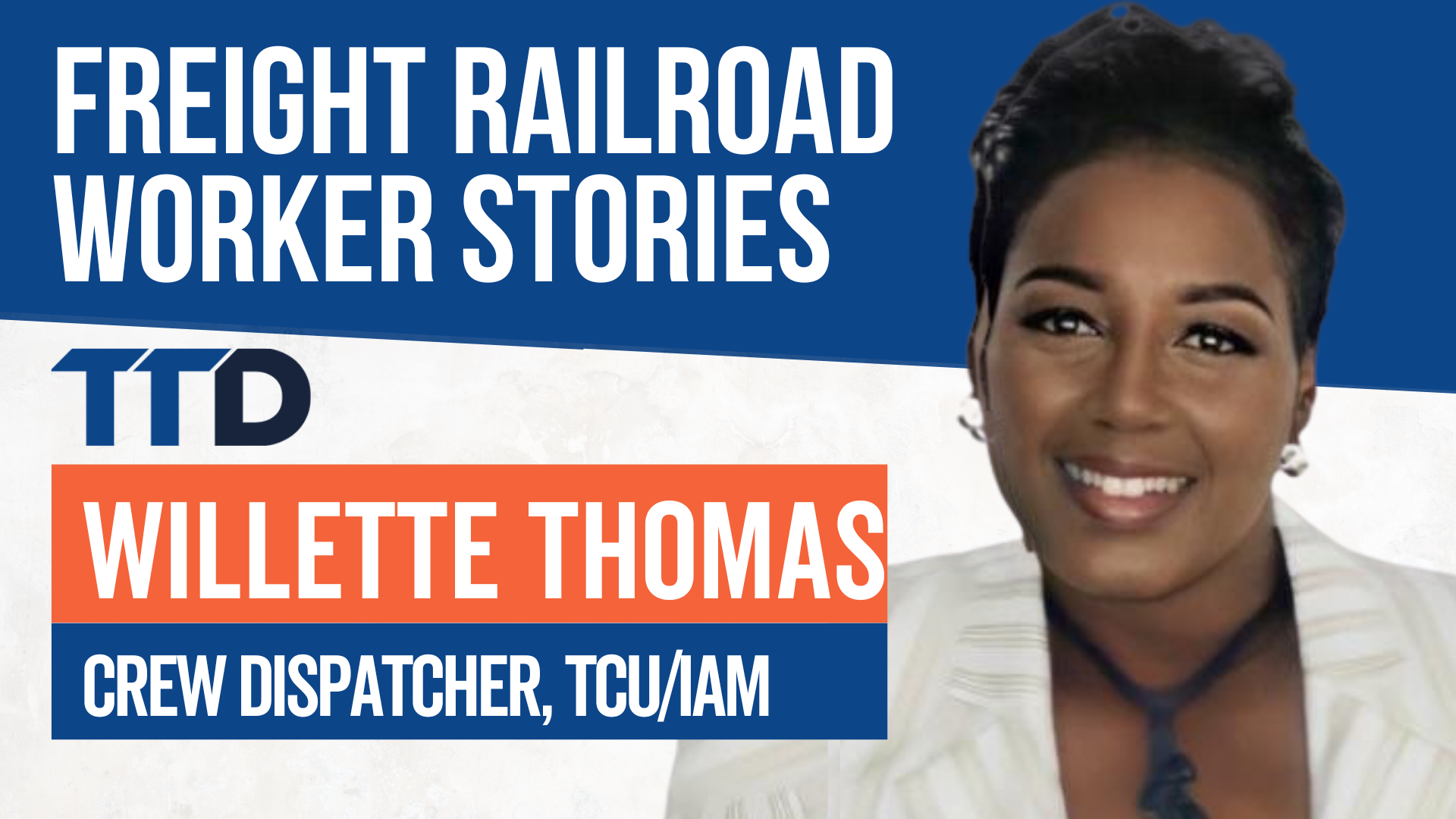
At a recent Virtual Freight Railroad Worker Town Hall, Transportation Trades Department (TTD) President Greg Regan introduced a group of workers who explained the challenges they've faced in their three-year fight for a new contract with U.S. freight railroad companies:
Since 2015, seven major railroad companies made $146 billion in net profits off the backs off these workers. That’s the most money they’ve ever made in the history of railroading—even more than the Gilded Era railroad robber barons. During this same time period, the companies eliminated 45,000 jobs from the industry. Instead of recognizing the value of these workers, the companies have enacted massive job cuts and offered the remaining workers a net pay cut and worse health care benefits than they have now. This is unacceptable.
In the coming days, the AFL-CIO will share the stories of those workers. Check back here every day for more.
Today's story comes from Willette Thomas, a crew dispatcher who works for CSX in Jacksonville, Florida. She is a member of the Transportation Communications Union (TCU), an affiliate of the International Association of Machinists (IAM).
Thomas said: “I've been with the railroad for 23 years. When the pandemic started, we were told that we were essential workers and had to come to work every day. We were not afforded the safe option of working from home as others in the company were afforded. We were told that we were essential workers who had to come to work in the building, but we were not protected as essential workers.
“I work in a building that houses crew dispatchers and train dispatchers. They started with giving us partitions that barely reached our shoulders when we sat down. Finally, they gave us partitions that made sense—ones that were actually taller than us. They eventually gave us masks and wipes. But of course, those things were always running out. There were times when we had to use our own supplies or wait for them to gather the supplies.
“We are a 24/7 operation and we share desks. So even prior to COVID, it was very important that we wiped things down because we're desk sharing over three shifts. Then the layoffs came. So when the layoffs started coming, we were being forced to work 16-hour shifts. Every day we would go to work and we didn't know if we were coming home at the end of our scheduled eight-hour shift.
“And then we started getting COVID in waves.
“I can honestly say without any doubt that 99% of us got COVID in the building. There were deaths, many deaths. We had crew dispatchers who passed away. We had managers who passed away. We had train dispatchers who passed away. I mean, these are people's families, their husbands, their sons. These were family members that were passing away as a result of not being properly protected in the building and not being given the opportunity to work from home.
“I know that we have the Employee Assistance Program (EAP) but nobody ever really said to us, ‘Do you need EAP? Are you OK? Are you all emotionally and mentally OK?’ No one ever asked. There was no compassion. We showed up, we worked with no contract, no raise, and never an offer for hazard pay of any kind.
“I never felt like an essential worker. I was never recognized as an essential worker. I get it. I'm not a doctor. I'm not a nurse. But when the railroad said that I had to come to work every day because I am an essential worker but I never received any essential worker benefits from it, that was disheartening. There was no COVID pay when we were out sick. We had to use our own entitlements to maintain financial stability—if you had entitlements. I had my daughter and a newborn grandson at home. There was always the scare of coming home and giving my family COVID, which I did. My daughter got it. Thank God, the baby was fine, but there was always that fear.”

